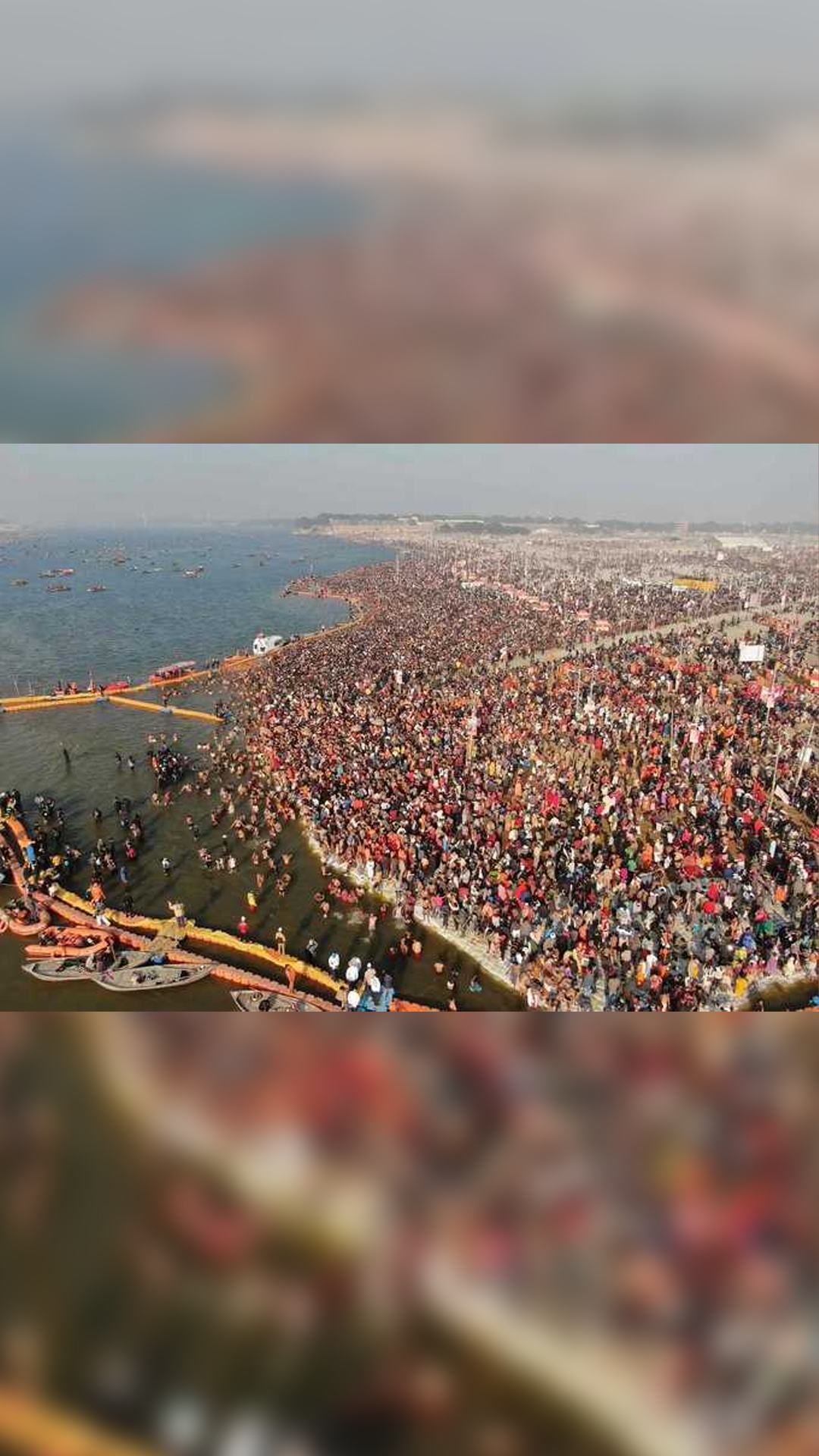
7 interesting facts about 'Maha Kumbh Mela' in Prayagraj
Image Source : XAncient origins: 'Maha Kumbh Mela' traces its roots to Hindu mythology and ancient scriptures, celebrated for over 2,000 years as a significant religious and cultural event.
Image Source : PTIRotational Cycle: The Kumbh Mela occurs in a 12-year cycle across four locations: Prayagraj, Haridwar, Ujjain, and Nashik, with the Maha Kumbh taking place exclusively in Prayagraj.
Image Source : SOCIAL MEDIAA confluence of rivers: It is held at the Triveni Sangam in Prayagraj, where the Ganga, Yamuna, and the mythical Saraswati rivers meet. It is believed to be a sacred spot for spiritual cleansing.
Image Source : SOCIAL MEDIAPilgrim activities: Activities include ritual bathing in the Sangam, religious discourses by saints, devotional singing, and mass feeding, making it a blend of spirituality, culture, and tradition.
Image Source : SOCIAL MEDIALargest human gathering: Recognised as one of the largest peaceful gatherings in the world, the 'Maha Kumbh Mela' attracts millions of devotees, saints, and tourists.
Image Source : SOCIAL MEDIAAstrological significance: The event's timing is determined by specific planetary alignments, particularly the position of Jupiter, the Sun, and the Moon.
Image Source : SOCIAL MEDIAUNESCO recognition: In 2017, Kumbh Mela was inscribed on UNESCO’s Representative List of Intangible Cultural Heritage of Humanity.
Image Source : SOCIAL MEDIANext : 7 bow cake trends you need to know about in 2024